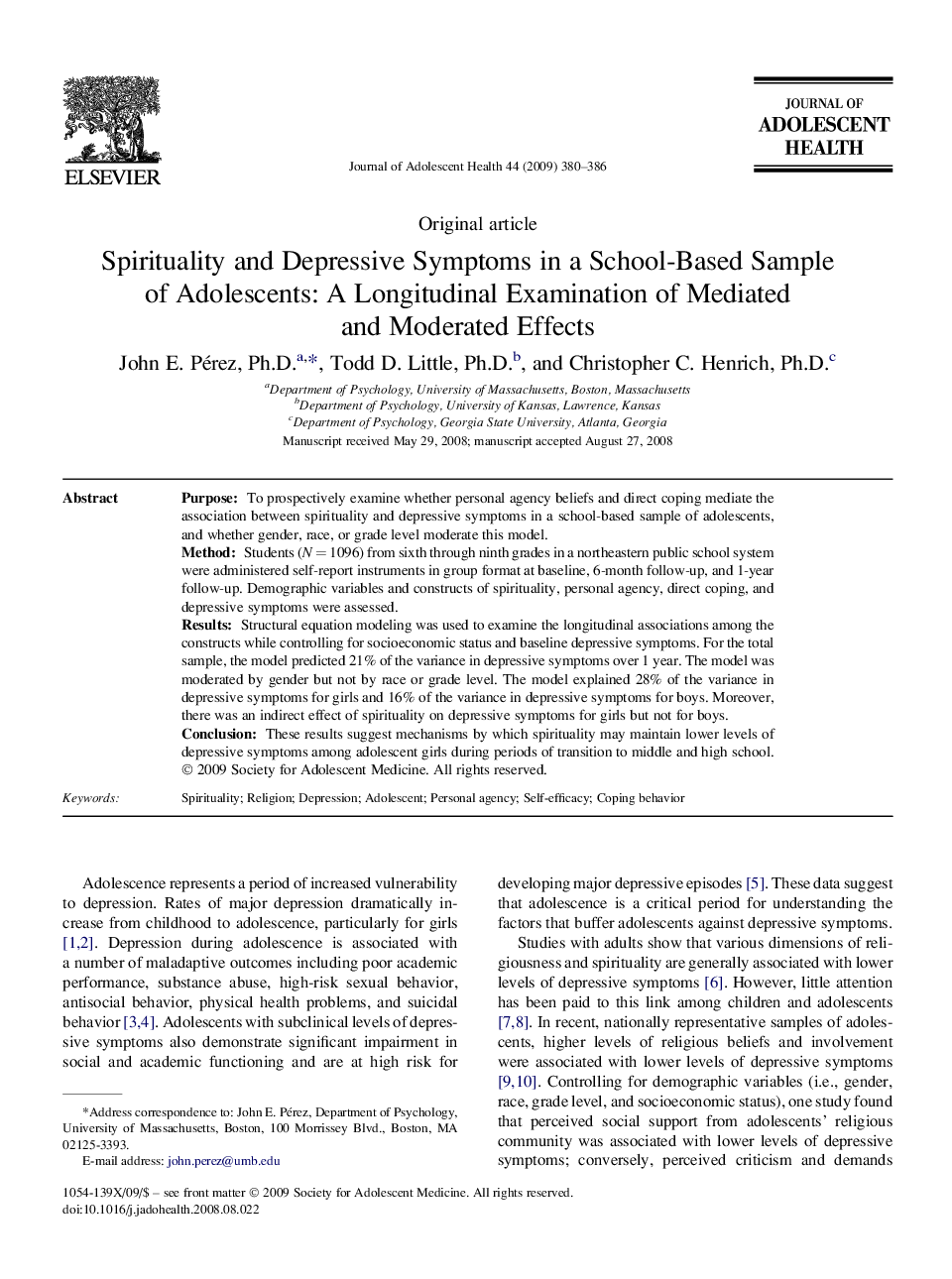| Article ID | Journal | Published Year | Pages | File Type |
|---|---|---|---|---|
| 1081352 | Journal of Adolescent Health | 2009 | 7 Pages |
PurposeTo prospectively examine whether personal agency beliefs and direct coping mediate the association between spirituality and depressive symptoms in a school-based sample of adolescents, and whether gender, race, or grade level moderate this model.MethodStudents (N = 1096) from sixth through ninth grades in a northeastern public school system were administered self-report instruments in group format at baseline, 6-month follow-up, and 1-year follow-up. Demographic variables and constructs of spirituality, personal agency, direct coping, and depressive symptoms were assessed.ResultsStructural equation modeling was used to examine the longitudinal associations among the constructs while controlling for socioeconomic status and baseline depressive symptoms. For the total sample, the model predicted 21% of the variance in depressive symptoms over 1 year. The model was moderated by gender but not by race or grade level. The model explained 28% of the variance in depressive symptoms for girls and 16% of the variance in depressive symptoms for boys. Moreover, there was an indirect effect of spirituality on depressive symptoms for girls but not for boys.ConclusionThese results suggest mechanisms by which spirituality may maintain lower levels of depressive symptoms among adolescent girls during periods of transition to middle and high school.
